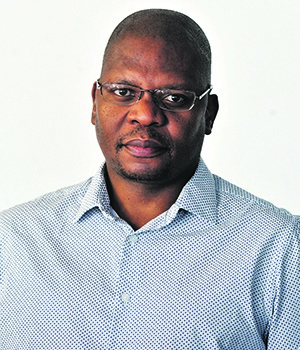
While the country was focused on the elections cliffhanger in Tshwane, Johannesburg and Nelson Mandela Bay, our attention was distracted from a potentially perilous development elsewhere.
That development was the creeping up of one-party dominance in the Western Cape, a phenomenon that could become as unhealthy as the national dominance that has thus far been enjoyed by the ANC.
It is early days yet and it is a little unfair to compare regional dominance to national dominance. Apples and pears, as the people of that secessionist island off the coast of France would say.
But just look at the picture of Western Cape provincial politics since 2004.
In that year’s general election, the ANC secured 45% of the vote to the DA’s 27%, and Marthinus van Schalkwyk’s New National Party achieved 11%.
The ANC then went into a coalition arrangement with the former party of apartheid, with whom it had already agreed to merge at national level.
The following year, the provincial legislators from the New National Party joined their parliamentary counterparts in using the floor-crossing window to fully embed in the ANC.
So much for the noise made during the election campaign about the DA being the only one that absorbed apartheid’s detritus.
The landscape changed very quickly thereafter. Following an inconclusive result in the 2006 local government elections, the DA cobbled together an unwieldy coalition that put Helen Zille in charge of the City of Cape Town.
It cleverly used this power as a springboard to take over the provincial government in the 2009 local government elections with 51.46% of the vote.
From there, it was up, up, up for the DA and down, down, down for the ANC.
In the 2011 municipal elections, the DA converted its leadership of the ramshackle coalition into 61% control of the metro.
The DA also gained in smaller municipalities, with Beaufort West remaining the only significant city in ANC hands.
This was to be followed by a 59% win in the 2014 general elections. By this time, the ANC had dropped to 34%.
Then came this month’s local government elections and the rout was complete. The DA’s 66.6% to the ANC’s 23.4% was nothing short of humiliation.
The humuliation was province-wide, with the DA even knocking the ANC off its perch in Beaufort West.
It is now clear that the ANC is fast being destroyed in the province, particularly in South Africa’s legislative capital.
Given this trend, it does not take a stretch of the imagination to see the DA leap in to the 70s in the 2019 general election and the ANC decline into the teens.
Now, you cannot blame the DA for its success. The party had a clear strategy. Seize Cape Town and portray it as a model for good governance.
Use this to catapult it into the provincial administration. Use Cape Town and the Western Cape as a model of its governing style for the expansion of its base nationally.
There are strongly conflicting views as to whether Cape Town and the Western Cape are indeed those models of good governance for everyone.
The DA’s opponents, including the ANC and civil society groups, point to the disparate inequality in the city and the province as evidence that the much-vaunted “good governance” is only for the privileged.
The DA’s riposte is that inequality is national and historic, and argues that it has done more than the ANC in running administrations to redistribute resources from the rich to the poor through progressive rates hikes.
The ANC, on the other hand, has just imploded.
The party’s leaders spent the better part of the past 10 years walking around with daggers in their man-bags, ready to pull them out and plunge them into a comrade’s torso.
With each ANC conference and with the election of each new leadership corps, there have been boasts that new beginnings had arrived.
But as soon as the new leaders had settled into office and ordered new coffee mugs, there were moves to destabilise them. Numerous interventions by the national leadership have borne no fruit as the Western Cape leaders fought over a pie that they had no access to.
Anyway, whether or not you believe that the DA has the model for clean governance and redistribution, the fact is that this narrative has worked for it and opened doors into areas where its activists were persona non grata.
The result is that for the next decade – if not longer – the DA is going to wield enormous power over the Western Cape.
Unless another force emerges to take the place of the fast-disappearing ANC, this power will be unchecked.
This portends all sorts of dangers – chief of them the arrogance, corruption and unaccountability that we have witnessed at national level.
I can already hear the riposte: But we are the party of values and principles. We are the party of cleanliness. We care about the people and not about our own pockets.
To which the answer must be: Where have we heard that before?




 Publications
Publications
 Partners
Partners








